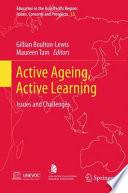
New Approaches in Software Measurement
10th International Workshop, IWSM 2000, Berlin, Germany, October 4-6, 2000. Proceedings
Software measurement is one of the key technologies employed to control and manage the software development process. Research avenues such as the applicability of metrics, the efficiency of measurement programs in industry, and the theoretical foundations (of software engineering?) have been investigated to evaluate and improve modern software development areas such as object-orientation, compone- based develop-ment, multimedia systems design, reliable telecommunication systems etc. In the tradition of our software measurement research communities, the German Computer Science Interest (GI) Group on Software Measurement and the Canadian Interest Group in Software Metrics (CIM) have attended to these concerns in recent years. Initially, research initiatives were directed at the definition of new methods of software measurement and the validation of these methods themselves. This was then followed by more and more investigation into practical applications of software measurement and key findings in this area of software engineering have been published in: - Dumke/Zuse: Theory and Practice of Software Measurement, 1994 - Ebert/Dumke: Software-Metriken in der Praxis, 1996 - Lehner/Dumke/Abran: Software Metrics - Research and Practice in Software Measurement, 1997 - Dumke/Abran: Software Measurement - Current Trends in Research and Practice, 1999 We would also like to mention that the proceedings of the Lac Supérieur workshop have been made available on the web at www. lrgl. uqam. ca? This new book includes the proceedings of the 10th Workshop on Software Measurement held in Berlin in October 2000.
- ISBN 13 : 3540447040
- ISBN 10 : 9783540447047
- Judul : New Approaches in Software Measurement
- Sub Judul : 10th International Workshop, IWSM 2000, Berlin, Germany, October 4-6, 2000. Proceedings
- Pengarang : Reiner Dumke, Alain Abran,
- Kategori : Computers
- Penerbit : Springer
- Bahasa : en
- Tahun : 2003
- Halaman : 252
- Halaman : 252
- Google Book : https://play.google.com/store/books/details?id=p0BsCQAAQBAJ&source=gbs_api
-
Ketersediaan :
Summary of invocation types with keywords Type of invocation Keyword
Invocation of a method defined locally in the current class LOCL Remote
invocation of a method which is always implemented in the REM class to which
the target object ...









